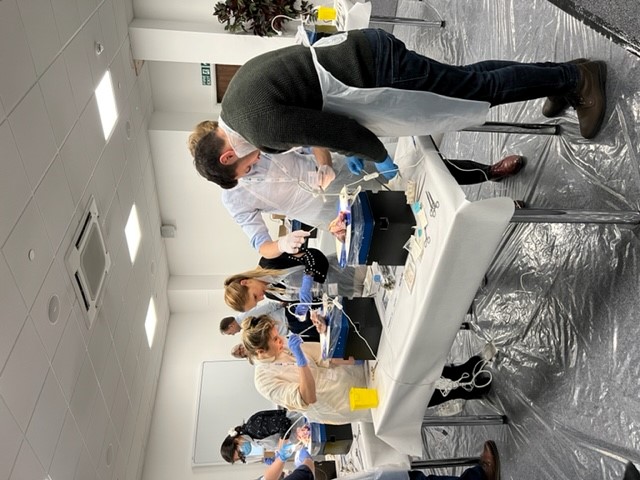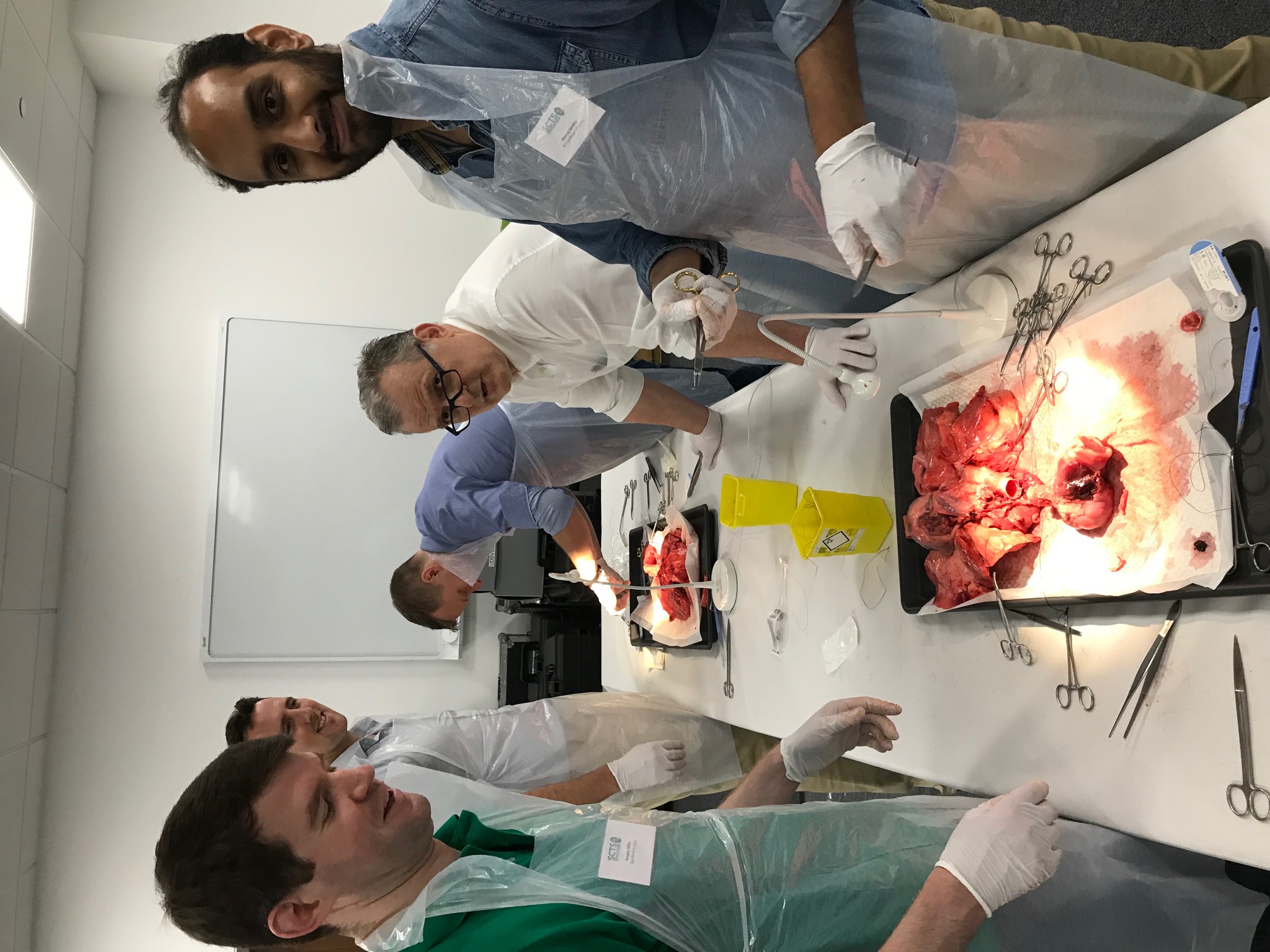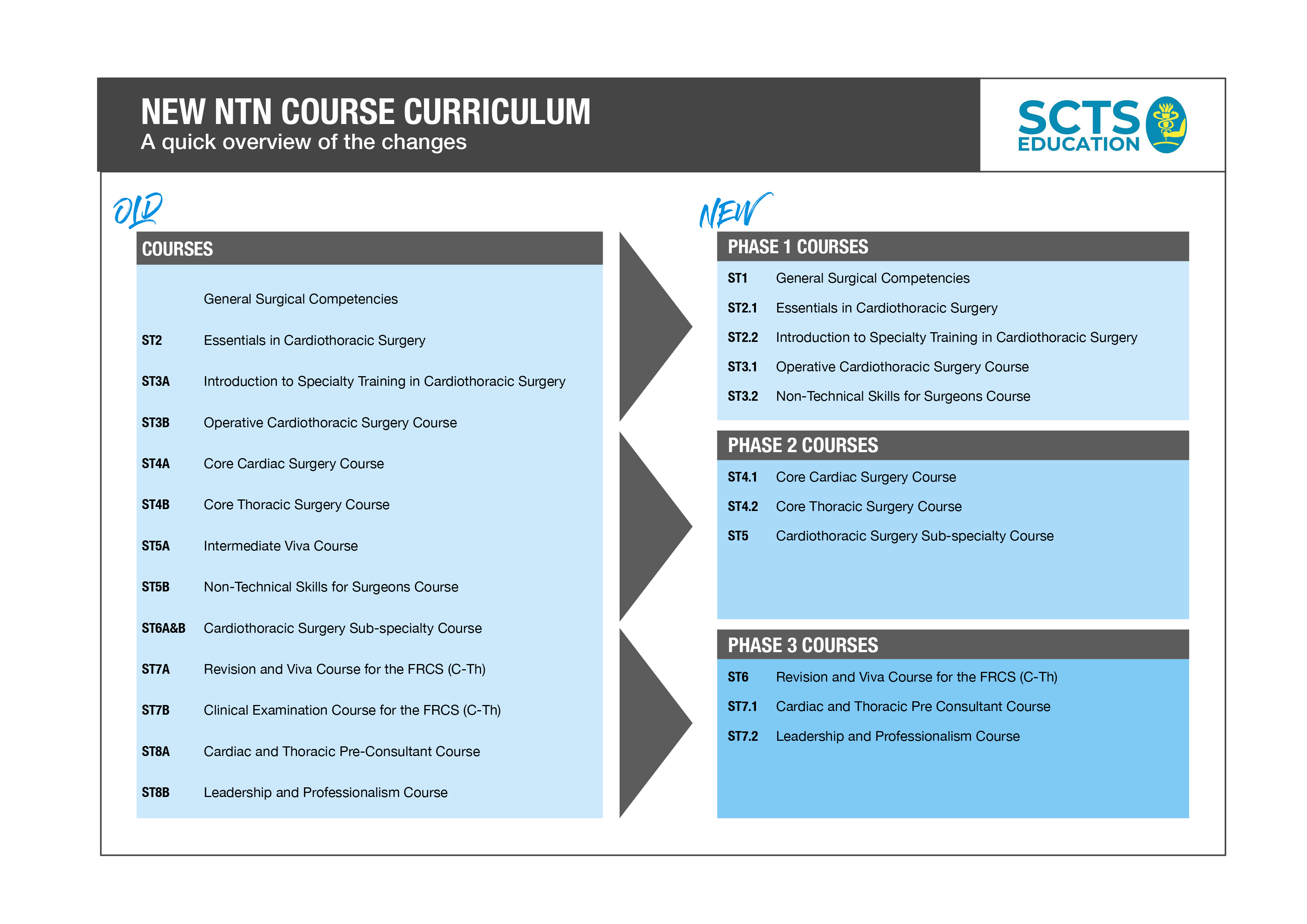Courses



Education forms the basis of your training as a nationally appointed Cardiothoracic Trainee and SCTS Education provides numerous courses annually to help with your development towards becoming a Cardiothoracic Surgeon.
Explore the sections below to see past courses and follow the link to the Event Calendar to see any upcoming courses that may be relevant to you.
Explore the additional educational pages of the specific speciality you are involved with:
Changes to SCTS Courses to Align with Cardiothoracic Surgery Curriculum 2021
The Education Committee of SCTS has designed the course delivery schedule such that it provides the trainee comprehensive support throughout their training. This article should serve to give trainees an idea about this structure and help them plan their future path.
In August 2021, a new Cardiothoracic Surgery Curriculum was introduced with changes to the training pathway and duration of training. Training will now normally be completed in an indicative time of seven years for those entering run-through training. The Education Committee of the SCTS has modified the NTN courses and their delivery to link to the new curriculum. This modification has led to the streamlining of courses from 12 to 10 and a change in the timing of the delivery of some courses. The training pathway is now structured such that it is divided into 3 phases as above and the courses have been aligned to these phases.
Phase 1: This phase of training will allow trainees to gain many of the general professional capabilities (GPCs) and the knowledge, clinical and technical skills in both cardiac and thoracic surgery, as defined in the ‘capabilities in practice (CiPs)’ and syllabus with an indicative time of 3 years for run-through trainees and 2 years for the uncoupled trainees. The courses for this stage of training are therefore designed to impart basic and generic skills for the specialty.
Phase 2: During this phase, trainees will train predominantly in either cardiac or thoracic surgery with a small number training in cardiothoracic surgery to fulfil local requirements. Trainees are expected to continue to further develop GPCs and knowledge, clinical and technical skills in their areas of special interest. The indicative time for this phase of training is 2 years.
Phase 3: Trainees are expected to continue developing their general professional capabilities as well as knowledge, clinical and technical skills in their own special interest areas. The indicative time for this phase is 2 years. Most trainees would be expected to be approaching the end of their training in this phase and they will likely be considering to take the FRCS examination and ultimately preparing for a competitive consultant job selection process and interviews, as well as for the initial years of consultant practice.
References:
Cardiothoracic Surgery Curriculum, The Intercollegiate Surgical Curriculum programme. Available at: https://www.iscp.ac.uk/media/1108/cardiothoracic-surgery-curriculum-aug-2021-approved-oct-20.pdf
Training in cardiothoracic surgery: how far is the other side of the table? Optimising training and looking to the future. Available at: https://publishing.rcseng.ac.uk/doi/ref/10.1308/rcsbull.2021.33
